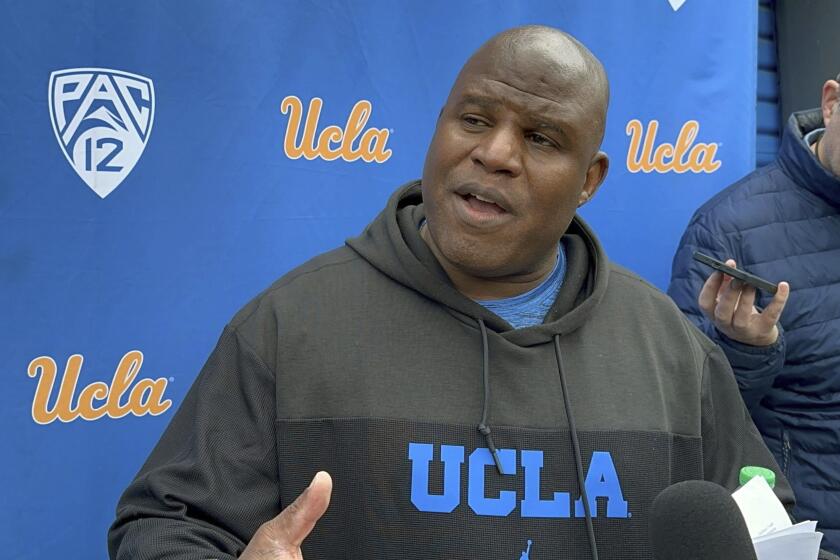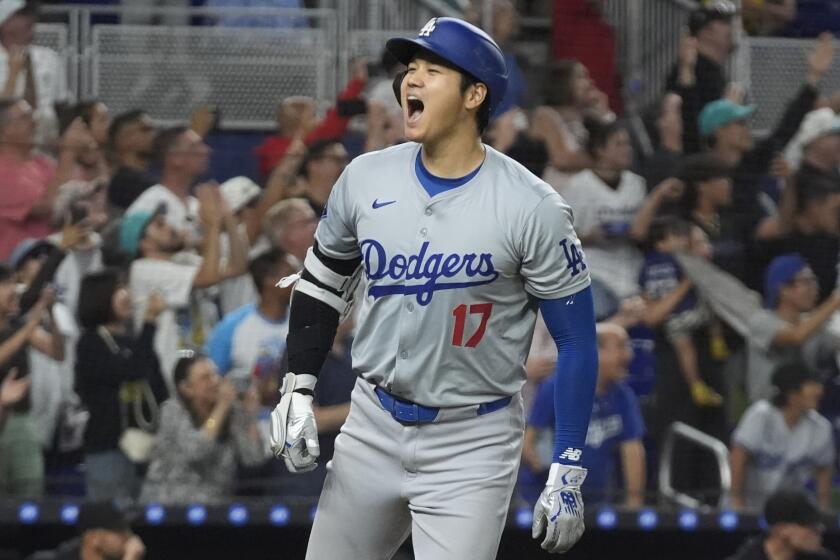The educated guess is age rule benefits the NBA and colleges
The real tournament is just starting today, but I can tell you who the NCAA winners are.
That would be the NBA and the college basketball empire, thanks to the NBA’s 19-year-old rule. The NCAA tournament and its sponsors stand to benefit from added attention and the pro league will get better-prepared, pre-marketed players. So it’s mission accomplished.
What, you thought this was supposed to be about higher education? In that case, we now return you to tonight’s episode of “Leave It to Beaver.”
College coaches, most notably Bob Knight, say that the NBA’s rule that practically forces high school seniors to go to college for at least a year before entering the NBA draft disrupts recruiting and will tarnish schools’ graduation rates. All true. Then again, if education were a priority, the NCAA would bring back freshman ineligibility, which would have the double effect of panning for serious students and letting them acclimate to college before hitting the courts.
Ah, but having players sit out while on scholarship would diminish the profits, wouldn’t it?
And I don’t see a nationwide refusal to recruit players who might not stick around.
Everyone knows that if the kids set foot on campus for just one year, it’s still good for business. Watch how much hype and TV airtime USC gets from O.J. Mayo’s expected pit stop next year.
The basketball business spreadsheets are looking stellar already. CBS could make $100 million in ad revenue for this NCAA tournament, Variety reported. Online ad sales for the second year of CBS Sportsline’s March Madness on Demand have doubled -- to $10 million -- according to SportsBusiness Journal. Those are the numbers CBS expected to hear when it forked over $6 billion for the NCAA tournament rights in 1999, the numbers that will keep the price high when this contract expires in 2014.
Who’s driving the college hoops buzz? Ohio State’s Greg Oden and Texas’ Kevin Durant, both of whom would probably be in the NBA right now if they had the chance. Instead, they’re bringing name recognition to the college game -- and building their profiles so that the NBA draft, training camp and the early stages of their rookie seasons will be media events.
Not only that, no NBA team has to pay a dime for any of it. Oden, who was injured part of the season, didn’t have to play one-handed while counting against a team’s salary cap. Swizzle-stick thin Durant can gain a little weight at Texas’ training table.
In retrospect, don’t you think the Clippers wish Shaun Livingston had filled out and bulked up before he got to the NBA? They drafted him straight out of high school, brushed aside questions about his thin physique, then watched him miss a minimum of 21 games in each of his first three seasons.
Clippers physician Tony Daly said they haven’t noticed any physical defects that made Livingston more susceptible to injury. But when discussing Livingston’s devastating knee injury last week, Daly speculated that perhaps jumping straight from high school to the pros was more than his body could handle.
I’ll always wonder if he would have been better off delaying the dream.
Some say Livingston is lucky he suffered this possible career-ending injury after he had a guaranteed $10-million contract in the pros, instead of playing for free in college. But what if he winds up missing out on the $40 million or more he’d make from his next contract?
I still think 18-year-olds should have the chance to make their own decisions and pursue a pro career if they want. But just because someone can turn pro doesn’t mean he always should.
UCLA’s Arron Afflalo provides a classic example of a player who made the right decision to stay in school. Without assurances of a first-round draft selection (and the guaranteed contract that comes with it), Afflalo came back and anchored a team with Final Four potential, while picking up All-American and conference player of the year honors. His draft stock should be higher this year.
In Afflalo’s case, a sound business decision. More than ever, that’s the sign of someone who’s ready for the NBA.
More to Read
Go beyond the scoreboard
Get the latest on L.A.'s teams in the daily Sports Report newsletter.
You may occasionally receive promotional content from the Los Angeles Times.










